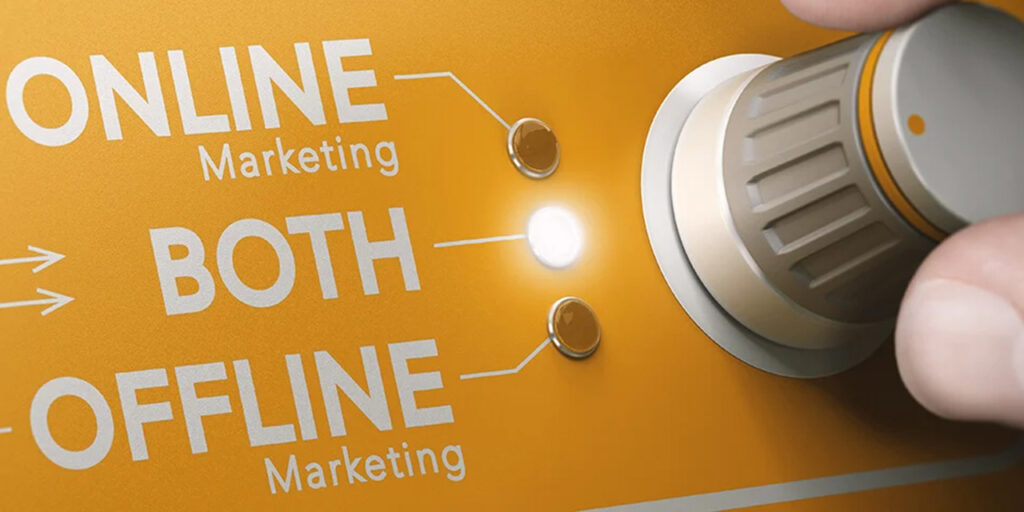
What is the best marketing channel for your business?
The first forms of advertising that we are aware of are from ancient China. According to the Classic of Poetry the earliest forms of advertising were auditory—in the form of bamboo flutes advertising candy to sell. Oftentimes in the middle ages, where the majority of the populace was illiterate, town criers were employed to shout messages through a method of street cries.
Who knows if Guglielmo Marconi (inventor of radio) or Philo T. Farnsworth (inventor of television) could have ever envisioned their tools to be used as amazing advertising channels. Could Al Gore (inventor of the internet) ever imagine that digital marketing would be the behemoth industry that it is today?
If you have tried to market your business (whether online or offline) you may have wondered what the best marketing medium is. There are so many options to choose from. You still have print, radio, billboards, and television in traditional, offline media. Believe it or not, even Yellow Pages still exist. Now, in the digital age, we have the three big categories of search, social, and email. But stating those three feels like it significantly understates the scope of digital marketing opportunities.
Here is but a partial list of options in digital marketing and advertising that we have today:
- Web Design and Development (yes, this is marketing and not IT)
- Social Media (organic and paid)
- Search Engine Marketing (organic and paid)
- Email Marketing (including things like newsletters, drip campaigns, automated sends, etc)
- Affiliate Marketing
- Influencer Marketing
- Display Advertising
- Connected TV
- OTT (over-the-top advertising on video and internet radio)
The list goes on, but you get the gist.
So, which marketing channel is best?
The standard answer I give my clients is, “Whichever channel the salesperson is selling.”
- If you are talking to a radio salesperson, radio will be best.
- If you are talking to a TV salesperson, TV will be best.
- If you are talking to an SEO salesperson, SEO will be best.
- You get the idea.
Most of the traditional marketing and advertising salespeople also sell something in the digital space. The two most common things you’ll find from a salesperson who sells, say, radio or TV ads will be SEO (search engine optimization) and PPC (pay-per-click like Google or Bing). They will often sell cheap websites and not consider the website as marketing. They’ll treat it as a means to an end. To a certain extent, that’s true, but if it’s not thought of as a marketing platform, it will never reach its full potential.
What’s the reality?
The reality is that no one channel is best. You need a healthy combination that aligns with your goals and meets your target audience where they are in order to reach your maximum success potential. Think of the big brands you know so well: Apple, Coca-Cola, McDonalds. You will see they do not rely on one channel for marketing. Any one of those brands will have a variety of traditional and digital channels they will advertise and market through.
Every business needs all the channels, just in differing proportions. Just because your business isn’t a multi-billion dollar business doesn’t mean that you magically don’t need them all. Assuming your budget doesn’t allow you to use all the channels, you’ll have to prioritize to focus on the channels that are best for your situation.
Enter Full-Stack Marketing
About 30 years ago, as web development became a thing, a career path opened up for developers to begin focusing on the web. At first, there were very few technologies and the skills were very transferrable. Someone who was a decent programmer could transition to web development pretty easily. As more technologies became available, more skills were required. The concept of a full-stack web developer came into being. The current definition came about around 2008. In short it means that the developer has all the development competencies to take care of your website from backend programing to frontend design.
So, let’s take that same concept and apply it to marketing. A full-stack marketer applies all the channels to your marketing needs. In fact, I’ll clarify that just a little bit. A qualified full-stack marketer will apply the right channels at the right time to meet your marketing goals.
You Never Know What You’ll Need
It’s impossible for a company who doesn’t think in terms of full-stack marketing to really provide the best marketing experience for their clients. If you buy just SEO from a vendor, that covers one tiny part. If you just buy social media marketing, that covers another tiny part.
The right full-stack marketer will understand that the formula for success will not only be unique to your company and market but also will change from quarter to quarter. It’s about doing what you need, when you need it, in the way that you need it.
Don’t settle for less.